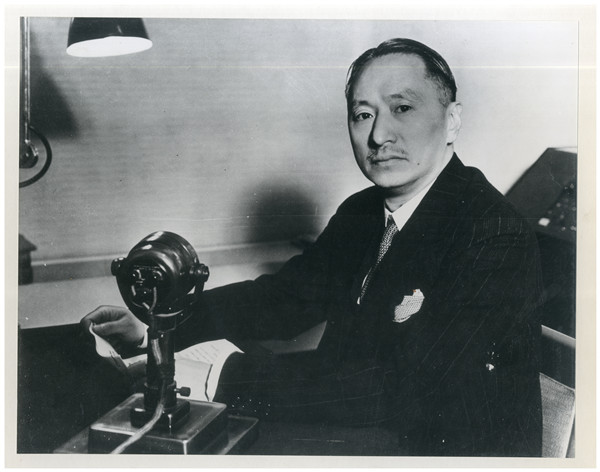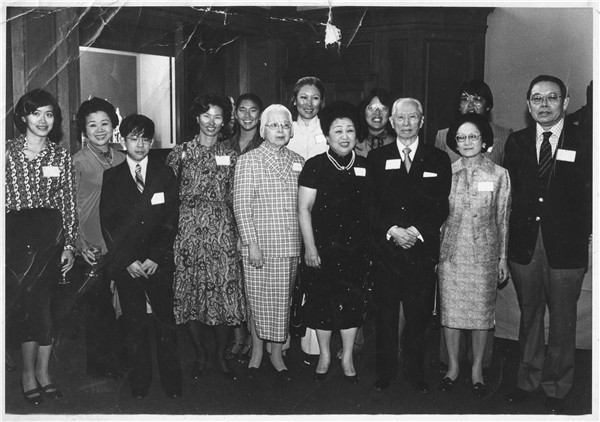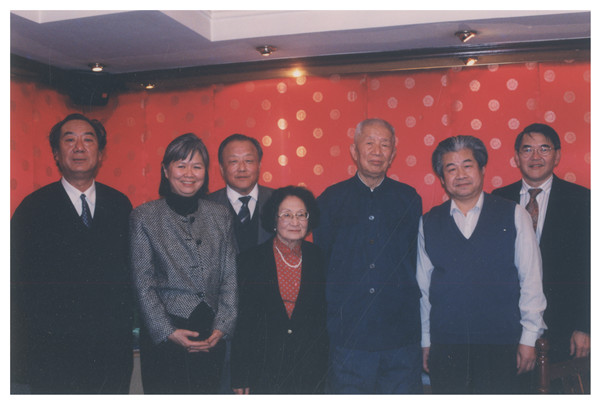
A mirror for the present
Xing Yi
A digital archive of papers from Columbia University on famous diplomat V.K. Wellington Koo will be available later this year.

A digital archive of papers from Columbia University on famous diplomat V.K. Wellington Koo will be available later this year. Xing Yi reports.
A digitized archive of V.K. Wellington Koo's papers will be available online in November, offering researchers access to materials from the legendary 20th-century Chinese diplomat's collection of papers kept by Columbia University.
Columbia University has around 300 boxes of the famous diplomat's letters, notes and documents, among which 57 boxes were donated by his family after his death.
The online archive is a joint project by the university and the Institute of Modern History of the Chinese Academy of Social Sciences, and parts of the collection are being released for the first time.
Some replicas of Koo's papers are now on display at the Columbia Global Center in Beijing through Sept 15.
Wang Jianlang, director of the Institute of Modern History, said at the opening of the exhibition on July 14 that the cataloging of more than 200 boxes of the archive materials is complete, and they will be accessible on the institute's online database after a final check.
"When studying the history of China's modern diplomacy, one cannot ignore Koo," says Wang. "Koo is regarded as the No 1 diplomat of the Republic of China."
Sean Quimby, director of Columbia University's Rare Books and Manuscript Library, says: "The Koo archive consists of meticulously written notes of conversations with various figures, including at least three presidents of the United States."
The digital project now includes 60,000 items.

Born in 1888 in Shanghai, Koo, whose Chinese name is Romanized as Koo Vi Kyuin, or Gu Weijun in pinyin, received traditional Chinese education before he went to a missionary school, St. John's College.
At the age of 16, Koo went to study in the United States.
He spent seven years in Columbia University in New York, studying international laws and diplomacy, and earned his doctoral degree with a thesis, The Status of Aliens in China.
In 1912, Koo became the secretary of Yuan Shikai, then-president of the Republic of China, and stepped into a diplomat career.
Koo was appointed as Chinese ambassador to the US in 1915 and became one of the five Chinese delegates to negotiate the Treaty of Versailles at the 1919 Peace Conference in Paris after World War I.
Koo made his name known on the international stage by his eloquence and persistence defending China's sovereignty over some territories in Shandong province which were occupied by Germany during World War I.
Failing to secure the return of the territories to China (they were granted to Japan), Koo and the delegation refused to sign the treaty.
It is regarded as the first time in China's modern history when the country said no to major Western powers.
Later, Koo held various important government posts in the 1920s and 1930s, including finance minister, foreign minister and interim prime minister.
In the early 1930s, Koo assisted the international inquiry delegation investigating the invasion of Northeast China by Japanese troops.

When the War of Resistance against Japanese Aggression (1931-45) broke out, he traveled to Geneva to speak at the League of Nations, helping China to win international support.
Koo was ambassador to Britain from 1941 to 1946, during which time he promoted talks between China and Britain, a milestone in the process of abolishing unequal treaties Britain imposed on China.
He also contributed greatly to the founding of the United Nations at the end of World War II.
"Koo was one of the very few senior diplomats in the world who experienced both the forming of the League of Nations and the establishing of the United Nations," says Jin Guangyao, a Fudan University historian who has written a biography of Koo.
Jin studied Koo's archives when he was doing research in the US in 1997.
"Back then, I had to transcribe the papers," Jin recalls. "I'm sure the digital archive will benefit many researchers when it goes online."
From 1957 to 1967, Koo served as a judge at the International Court of Justice at The Hague.
After retirement he moved to New York, where he died in 1985. He was 97 years old.
He bequeathed to his alma mater, Columbia University, several hundred hours' worth of taped oral history and donated the paper documents that largely make up the archive.
Concluding his oral-history project in 1975, Koo wrote: "Since the early years of my career, I have always been keenly interested in preserving for future generations important diplomatic communications and references.
"For the history of today has its origin in yesterday, and such archives not only provide us with the mirror of the past, they also help us to better understand the changes taking place in our world."
Contact the writer at xingyi@chinadaily.com.cn